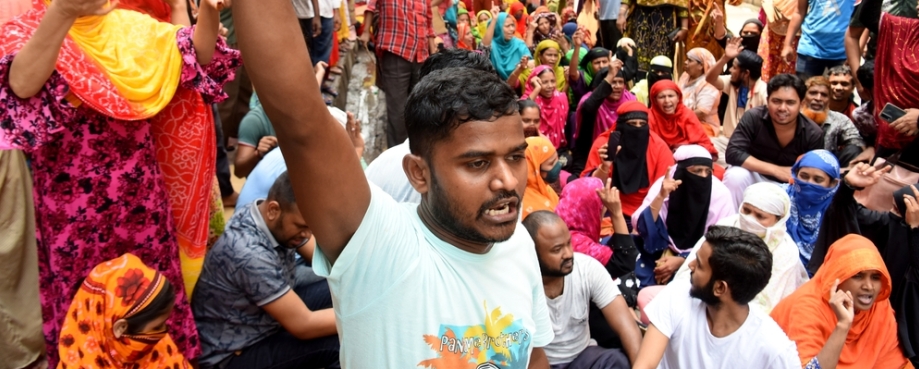
ETI and partners sent a letter to Bangladesh’s Prime Minister to raise concerns about New Minimum Wage for RMG Sector.
In a collective effort, the Ethical Trading Initiative (ETI), alongside amfori, Fair Labor Association (FLA), Fair Wear and Mondiaal FNV, has voiced its concerns regarding the recently announced minimum wage for the Ready-Made Garment (RMG) sector in Bangladesh. The letter, addressed to the Honourable Prime Minister, highlights crucial issues and calls for a reconsideration of the decision.
Bangladesh plays a pivotal role in the global RMG sector, and the commitment of its government to international labour and industry standards is duly acknowledged. The signatories, representing over 2500 international brands, retailers, suppliers, and workers across global supply chains, have significant ties to Bangladesh with more than 2900 factories.
The announcement of a new legal minimum wage of BDT 12,500 by the RMG Minimum Wage Board has prompted serious concerns. This amount falls short of covering basic needs and a decent standard of living for the workers and contradicts the government's commitment to decent work standards. The gap between the legal minimum wage and the average living wage in Bangladesh is the highest among major garment-producing countries, posing challenges to the RMG sector's aspirations to meet international standards and maintain its position as a responsible sourcing country.
In the letter, the signatories also voiced their support for periodic adjustments of minimum wage levels to prevent erosion of workers' purchasing power and wage inequality.
In the light of the recent protests, which have resulted in casualties, the signatories further urged the authorities to respect the freedom of association, the right to strike, and the right to demonstrate. We also called upon the government to release arrested protesters and drop all charges.
As committed parties, the signatories express their dedication to supporting a new legal minimum wage that ensures a decent living for RMG workers in Bangladesh. The signatories encourage their member companies to practice responsible purchasing, incorporating fair wages into their human rights due diligence, and ensuring that suppliers can afford to pay decent wages. This includes a fair and sustainable sharing of the cost burden for the increase in the legal minimum wage with the suppliers.
The signatories respectfully request the government to reconsider the decision of the minimum wage board and encourage employers and worker representatives to collaborate on setting a legal minimum wage that aligns with international labour and industry standards respecting human rights.
